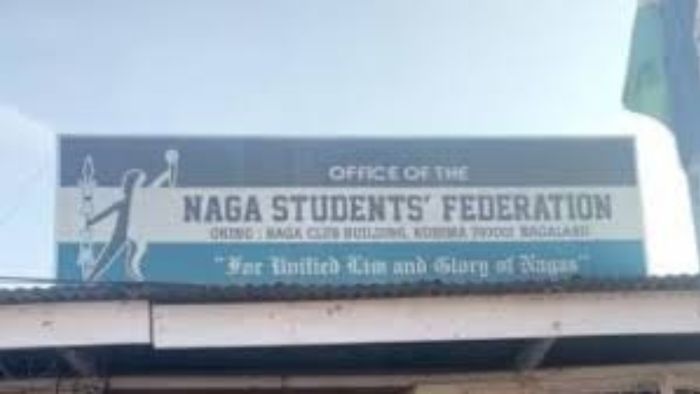Naga Students’ Federation backs JCC, demands state to uphold meritocracy in IAS induction process
The Naga Students’ Federation (NSF) has extended full solidarity to the Joint Coordination Committee (JCC), comprising CANSSEA, FONSESA, NSSA, NIDA and NF&ASA, in its demand for transparency and merit-based selection in the ongoing process of induction into the Indian Administrative Service (IAS) from among State civil service officers.

- Nov 06, 2025,
- Updated Nov 06, 2025, 3:59 PM IST
The Naga Students’ Federation (NSF) has extended full solidarity to the Joint Coordination Committee (JCC), comprising CANSSEA, FONSESA, NSSA, NIDA and NF&ASA, in its demand for transparency and merit-based selection in the ongoing process of induction into the Indian Administrative Service (IAS) from among State civil service officers.
In a strongly worded representation to the Chief Secretary, the NSF expressed “grave concern” over reports of “serious procedural discrepancies and irregularities” in the IAS induction process. The student body asserted that the inclusion of officers who allegedly entered service through “irregular, backdoor or unconstitutional means” would constitute a direct violation of the principles of meritocracy and constitutional governance.
Reaffirming its long-held position that meritocracy must remain “the inviolable cornerstone” of Nagaland’s public service system, the NSF urged the State Government to take immediate corrective steps. “The integrity of governance and the confidence of the people in public institutions depend upon assurance that every appointment and promotion is made strictly in conformity with constitutional mandates of equality, fairness and due process,” the statement read.
The NSF recommended that the Government nullify any irregular consideration in the ongoing IAS induction process and ensure that eligibility is limited exclusively to officers who entered service through duly constituted authorities such as the Nagaland Public Service Commission (NPSC) or other legitimate recruitment boards. It further called for a legally enforceable and transparent selection mechanism under the Department of Personnel & Administrative Reforms (P&AR), incorporating clear eligibility criteria, audit mechanisms, and independent oversight.
At the same time, the Federation appealed to the JCC to keep its ongoing agitation in “temporary abeyance” in the larger public interest, citing that prolonged disruptions could impede essential governance and public service delivery.
Reiterating its commitment to uphold fairness and integrity in public institutions, the NSF said any compromise on meritocracy or constitutional propriety would be viewed as an “act contrary to the spirit of good governance.”
The controversy over IAS induction has sparked wide debate in Nagaland’s bureaucratic and civil society circles, with several organisations calling for reforms to ensure transparency and equal opportunity in the State’s administrative structure.